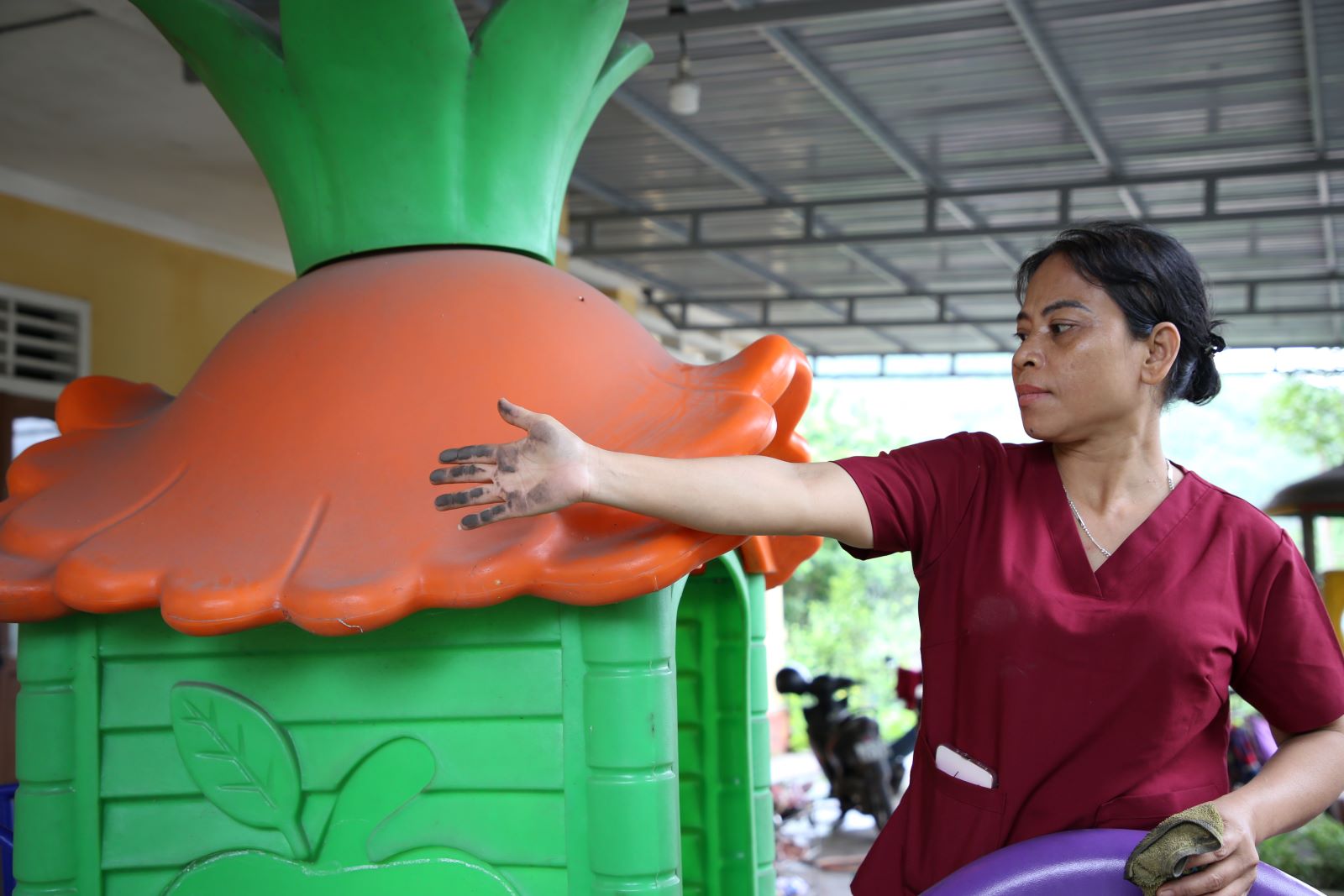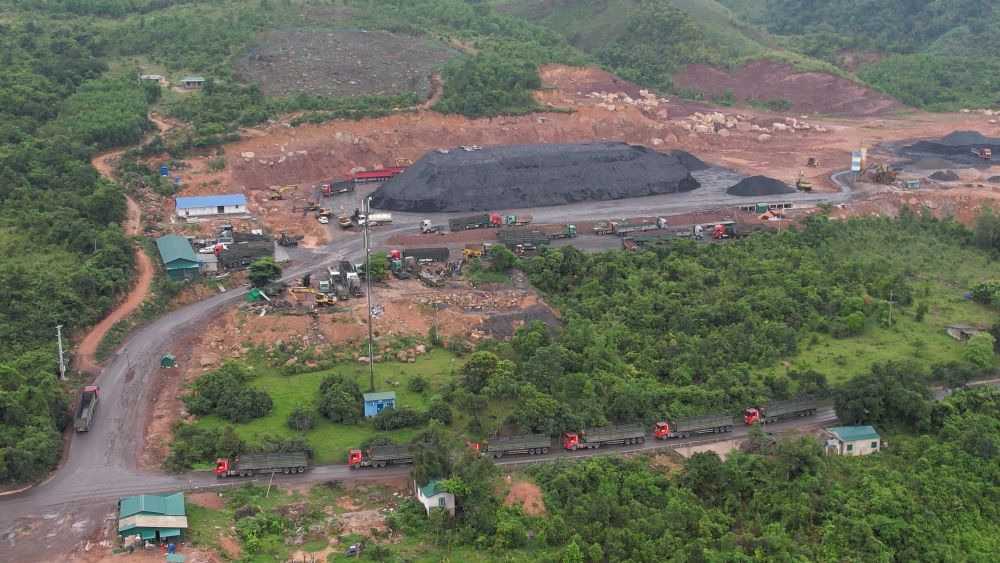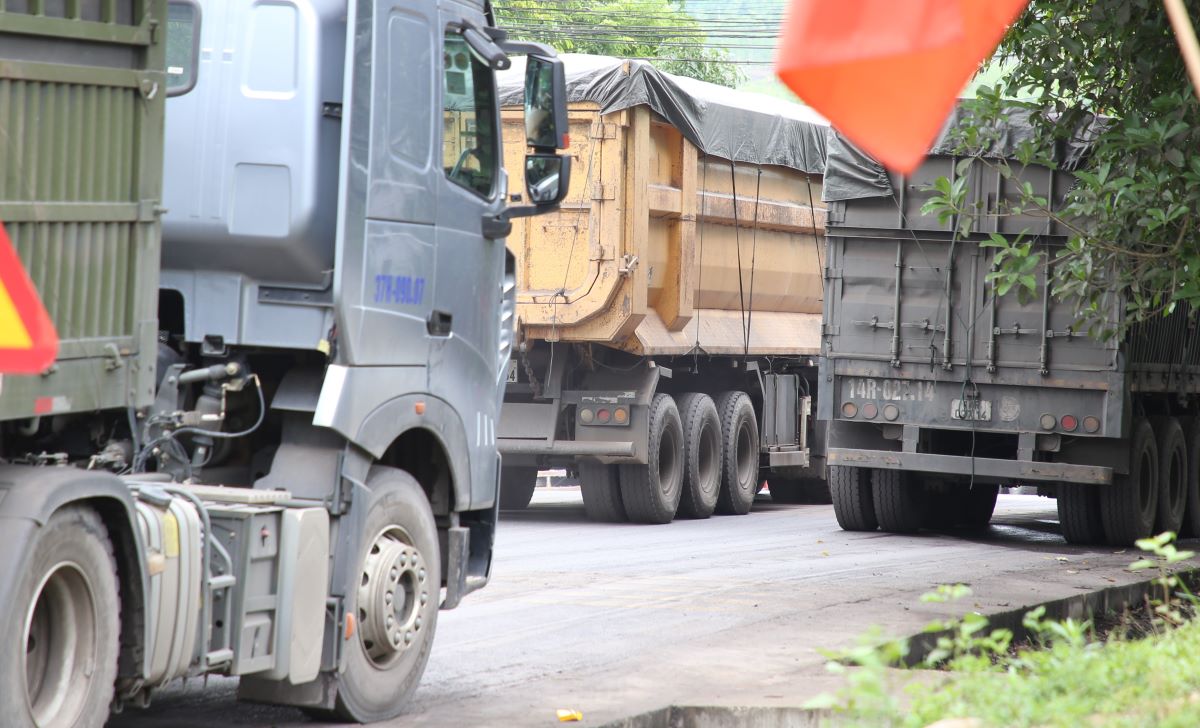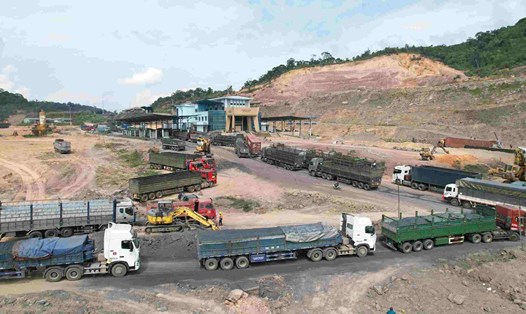Every day at school, I have to clean the dust several times
A Rong Tren school (A Rong village, A Ngo commune, Dakrong district, Quang Tri province) belongs to A Ngo Kindergarten located right on National Highway 15D at the intersection with Ho Chi Minh road. Here, there are 2 teachers responsible for teaching 22 children of ethnic minorities Van Kieu - Pa Co.

At the class at the beginning of the morning, teachers Ho Thi Lai and Nguyen Thi Hoai had to immediately embark on sweeping the dust from the classroom to the yard. As for the slide and plastic toys in the yard, the female teacher had to open the spray tap and wipe many times to clean the black dust covered around.
The day we arrived on the rainy day, teacher Ho Thi Lai put her hand in black with dust, and the gray towel turned black when cleaning children's toys, saying "happy it was raining". If it is not raining, especially on hot days, stand on the schoolyard "unable to breathe" because of the dust.
"I sweep the classroom many times a day, then wip it with a wet cloth. But after being wiped, the black dust appeared again. On weekends, after two days off, when I return to class, the coal dust is thick, I have to use a spray bottle and scan it again to clean it, but it only get dirty for a while" - teacher Ho Thi Lai shared.
A similar situation also occurred at La Lay school in A Ngo Primary and Secondary School.

Building houses in front of National Highway 15D passing through A Nguyet village (A Ngo commune), over the past 2 years, Ms. Nguyen Thi Giao Linh's family eats and sleeps. "My house is near the road and near the beach to lower charcoal, sunny weather, strong winds are dust as storms. The morning cleaning the house clean, in the afternoon is the black feet, eating rice, closing the door, but opening the door is always dust" - Ms. Giao Linh pressing.
No definitive solution yet
Recorded along National Highway 15D from Ho Chi Minh Road to La Lay International Border Gate, we witnessed a convoy of heavy trucks continuously moving up and down. Especially in the afternoon, many sections of the traffic line were long due to local congestion. After the rain, a layer of mushy black mud appeared on the road, if it was sunny, the black mud would become dusty.

Mr. Nguyen Hoang Giang - representative of Nam Tien Company Limited said that his company and some units participated in purchasing and transporting coal and rock from the other side of Laos, bringing it back to Vietnam through La Lay International Border Gate. During the coal transportation process, although trucks have covered the tarpaulins, there is still dust.

"We will fix it by watering and covering it with tarpaulins to limit the coal dust affecting people. And recommended that the locality quickly upgrade the road to facilitate traffic" - Mr. Hoang Nam Giang said.
Mr. Ho Tat Huan - Chairman of the People's Committee of A Ngo commune said that the situation of vehicles transporting coal and stone from Laos to Vietnam causes environmental pollution, the sun causes dust and the rain causes dirt, greatly affecting the lives of people in the area. The transportation of coal is related to PTS Vietnam Logistics Joint Stock Company, Hoanh Son Group Company Limited and Nam Tien Company Limited.
In particular, the coal unloading platform of Nam Tien Company Limited in A Dang village is often reported by people as causing environmental pollution and traffic insecurity in the platform area.
The People's Committee of A Ngo commune has repeatedly petitioned superiors, but it has not been completely resolved.
"We hope that the authorities will pay attention, take measures to reduce environmental pollution and ensure traffic safety on National Highway 15D and Ho Chi Minh Road through the area, creating favorable conditions for people in terms of travel and ensuring their lives" - Mr. Ho Tat Huan said.
Pollution caused by coal dust and traffic insecurity caused by heavy trucks carrying coal not only occurred in A Ngo commune, but also extended dozens of kilometers through Huc Nhi and Ta Long communes. In recent years, people have expressed their opinions, and local authorities have also sent petitions to higher levels, but there has not been a suitable solution to completely resolve the above situation.









